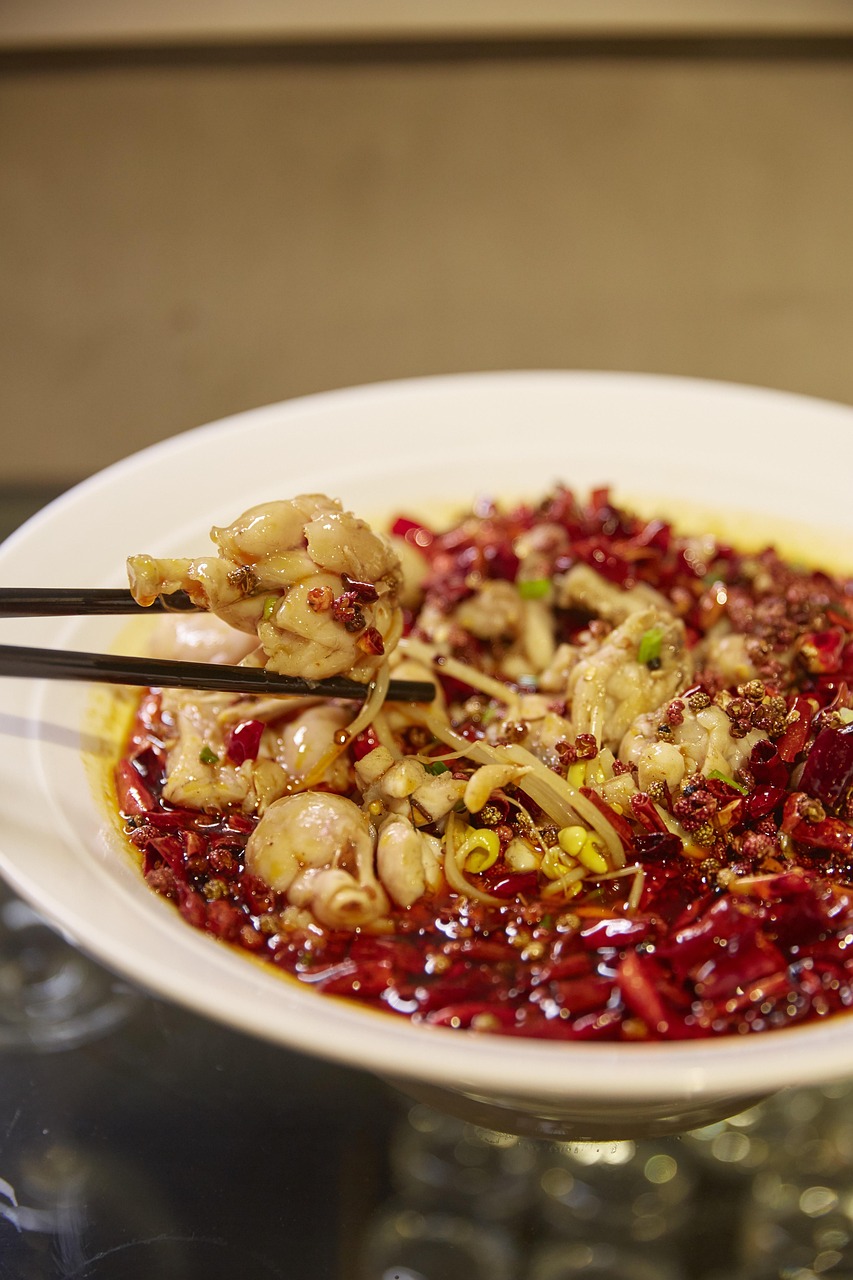Essential Uses of 了 le in Chinese
In this post we’ll look at some of the most essential uses of 了 le in Chinese. The particle 了 le is very flexible in Mandarin Chinese. It can convey a whole range of meanings and nuances, depending on the specific structure and relation to other words in the sentence. First, we’ll look at a few common fixed constructions with 了 le. Next, we’ll turn to change of state 了 le, which indicates that something new has begun, marking a difference from the past. After that we’ll see completed action 了 le, stressing that an action has been completed, regardless of tense. (It’s not just the past!). Then we’ll look at past duration 了 le. Finally, we’ll look at double 了 le.
Fixed Construction 了 le
The particle 了 le appears in several common fixed constructions. We’ll just cover a few of the most important uses of le in Chinese fixed constructions here.
太…了 tài… le
The construction 太…了 tài… le appears around an adjective to mean too.
Structure: 太 tài [adjective]了 le
- 太大了。
Tài dàle.
It’s too big. - 太辣了。
Tài làle.
It’s too spicy. - 今天太热了。
Jīntiān tài rèle.
It’s too hot today.
…极了 … jí le
The construction …极了 … jí le comes after an adjective and means extremely, very, totally, so… 极了jí le is typically used with descriptive adjectives, but not with verbs or negative or intense emotions.
Structure: [Adjective] +极了 jí le
- 这道菜好吃极了!
Zhè dào cài hǎochī jí le!
This dish is incredibly delicious! - 他累极了。
Tā lèi jí le.
He’s totally exhausted. - 今天冷极了。
Jīntiān lěng jí le.
It’s super cold today.
…死了 … sǐ le
The construction …死了 … sǐ le is used with adjectives or verbs that have a negative or intense meaning. It’s a bit like as hell or freakin’ in English. It adds a strong emphasis to a negative or unpleasant situation.
Structure: [Adjective/Verb] + 死了 sǐ le
- 我饿死了!
Wǒ è sǐ le!
I’m starving to death! I’m freaking hungry! - 他急死了。
Tā jí sǐ le.
He’s super anxious! He’s worried sick! He’s out of his mind with worry. - 外面热死了。
Wàimiàn rè sǐ le.
It’s hot as hell outside. - 你真是臭极了!
Nǐ zhēnshi chòu jíle!
You really stink!
Change of State 了 le
Now let’s move on to other important uses of 了 le in Chinese. The particle 了 le marks that some sort of change of state has happened. For example, imagine that you’re talking about the changes that you see when spring arrives. You could use Change of State了 le to indicate that these things represent changes of states, something new on the scene that is true now but wasn’t true earlier. Change of State 了 le comes at the end of the sentence.
Structure: [Sentence] + 了 le
- 春天来了。
chūntiān lái le.
Spring is here! Spring has come. Spring has arrived now. - 天变长了。
Tiān biàn cháng le.
The days are longer. The days have become longer. - 花儿都开了。
Huār dōu kāi le.
The flowers are blooming. - 树叶发芽了。
Shùyè fāyá le.
Leaves are budding.
You’ll also see Change of State 了 le in expressions that indicate changing emotional or physical conditions.
- 我累了。
Wǒ lèile.
I’m tired. (I’m tired now. I’ve become tired.) - 我困了。
Wǒ kùnle.
I’m sleepy. (I’m sleepy now. I’ve become sleepy.) - 我饿了。
Wǒ è le.
I’m hungry. I’ve gotten hungry. - 我渴了。
Wǒ kě le.
I’m thirsty. I’ve become thirsty. - 我病了。
Wǒ bìngle.
I’m sick. I’ve come down with an illness. I’ve gotten sick.
Completed Action 了 le
Now let’s turn to another important use of 了 le in Chinese. The particle 了 le can also indicate a completed action. If you like grammatical terminology, this is known as a perfective aspect marker. It emphasizes that the action has been complete. Completed Action 了 le comes right after the verb:
Structure: [Verb] + 了 le
- 我吃了。
Wǒ chī le.
I ate. I have eaten. - 他走了。
Tā zǒu le.
He left. He is gone. - 我喝了三杯咖啡。
Wǒ hēle sān bēi kāfēi.
I drank/have drunk three cups of coffee. - 我们吃了晚饭。
Wǒmen chīle wǎnfàn.
We ate/have eaten dinner.
One important thing to remember is that aspect is not the same as tense. Completed Action 了 le can mark an action that was completed in the past, but it can just as easily mark an action that will be completed in the future.
- 我到家了就给你打电话。
Wǒ dào jiā le jiù gěi nǐ dǎ diànhuà.
When I get/have gotten home, I’ll call you. - 吃了晚饭我们就走。
Chī le wǎnfàn wǒmen jiù zǒu.
After we eat dinner/After having eaten dinner, we’ll leave.
Remember that Chinese typically uses context or time adverbials like 昨天 zuótiān (yesterday) or 明天 míngtiān (tomorrow) to show tense. Aspect is independent of tense.
Past Duration 了 le
The particle 了 le can also be used to express that an event lasted for a certain amount of time in the past. The structure is a verb, followed by 了 le, followed by a phrase indicating the duration:
Structure: [Verb] + 了 le + [Duration phrase]
Here are a few examples.
- 我们在北京住了三年。
Wǒmen zài běijīng zhùle sān nián.
We lived in Beijing for three years. - 她当了十年老师。
Tā dāngle shí nián lǎoshī.
She was a teacher for ten years. - 我睡了六个小时。
Wǒ shuìle liù gè xiǎoshí.
I slept for six hours. - 我们在电话里聊了一个小时。
Wǒmen zài diànhuà li liáole yīgè xiǎoshí.
We talked on the phone for an hour.
These examples are typically interpreted as being completed, meaning for example that we lived in Beijing for three years and no longer live there. Or, she was a teacher for ten years and now is retired or has a different job. If you want to express that an action is ongoing, you use the double 了 le construction.
Double 了 le
The Double 了 le is used to express that an action started and lasted for some amount of time in the past and is still ongoing. It’s typically translated as have/has done or have/has been doing in English. The structure uses 了 le after the verb, and a second 了 le at the end of the sentence:
Structure: [Verb] + 了 le + [Duration phrase] + 了 le
- 我们在北京住了三年了。
Wǒmen zài běijīng zhùle sān nián le.
We have lived/have been living in Beijing for three years. - 她当了十年老师了。
Tā dāngle shí nián lǎoshī le.
She has been a teacher for ten years. - 他睡了六个小时了。
Tā shuìle liù gè xiǎoshí le.
He has been sleeping for six hours. - 我们在电话里聊了一个小时了。
Wǒmen zài diànhuà li liáole yīgè xiǎoshí le.
We have been talking on the phone for an hour.
Get on the road to speaking Chinese with the Language Garage!
We hope you’ve enjoyed learning about some important uses of 了 le in Chinese. If you’d like to learn more:
- Follow us on Facebook, LinkedIn, BlueSky, Twitter, Threads, Instagram, or Pinterest. We publish lots of Chinese vocabulary, grammar, and culture notes, so it’s a great way to pick up some new vocabulary and practice.
- Check out our other posts on Chinese language, culture, and more.
- Enroll in affordable, flexible, and personalized private online Chinese lessons or sign up for a small group online Chinese class.
- Create a free Language Garage account to access tons of Chinese vocabulary, grammar, and culture.






